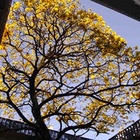When I was a student, we had an interesting kid in our class.
She was Japanese Brazilian, and spoke mostly Japanese at home.
Even though 90% of the class was Brazilian, she had no hesitation about using Japanese words.
“Anta, estudou para a prova?” (Did anta study for the test?)
[Editor’s note: “Anta” is the Japanese word for “you”.]
“Eu não entendi direito ano lição.” (I didn’t really understand ano lesson.)
[Editor’s note: “ano” is the Japanese word for “that”.]
It sounded weird at first, but the classmates just naturally accepted her. And because of her, recess became even more lively and fun.
Even now, I unconsciously smile every time I hear the word “anta.” Ah…I wonder what Elena is up to now. Does she have a family…a husband and kids she’s always saying “anta” to? Oh, the memories…
There’s also a Nisei language for Japanese food.
I have a friend who emigrated to Japan to work and lived there 10 years. He said, “The thing I found to be delicious in Japan was shuriko.”
I’ve never heard of shuriko. What is it?
“The thing with mochi in sweet bean paste.”
Oh…you mean oshiruko!
At a Japanese-Brazilian party, a man said in a loud voice, “Does anyone want shashimi? It’s the best.” Everyone started screaming, “Shashimi? I do, I do.” Sashimi is very popular.
At the morning market, a housewife was asking, “How much for this kabochan?” I was standing next to her, and as she selected the kabocha (pumpkin), she proudly told me, “I’m learning Japanese from my mother-in-law.”
As I was walking around the Asian area of São Paulo, a woman came up to me and asked, “Obasan (middle-aged lady), do you want some manju?” Obasan? She looked way older than me…Her basket was filled with packets of manju. I was a little perturbed, but I said, “OK, I’ll take one.”
When I stopped in front of a fish shop, a young man in tan dreadlocks asked me, “Baachan (old lady), you want some fish?”
Baachan?!
Now that really ticked me off!
© 2011 Laura Honda-Hasegawa




